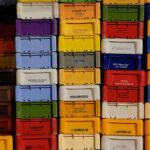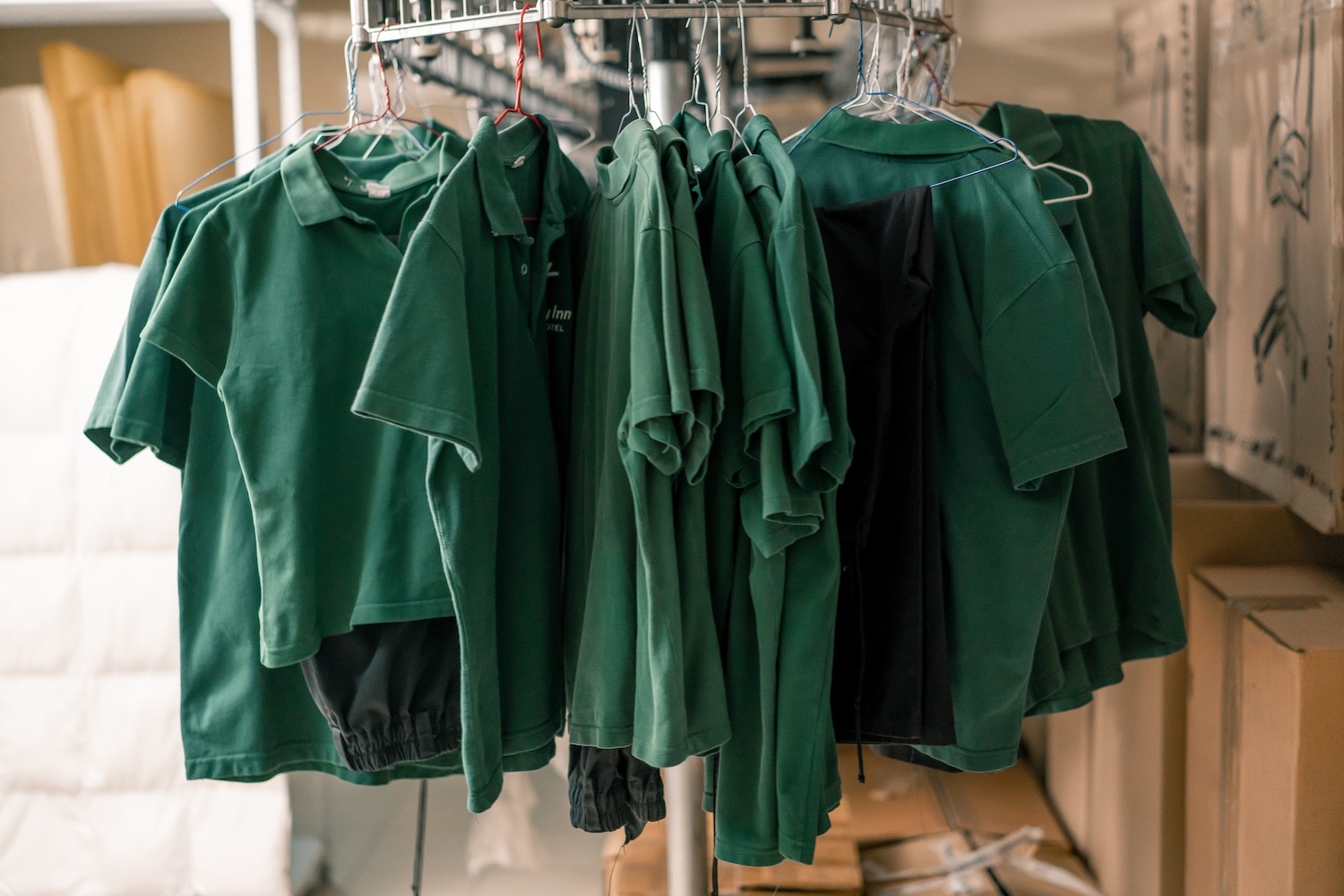In an era where sustainability is at the forefront of business practices, industries involved in uniform and clothing rentals are leveraging cutting-edge technologies to enhance efficiency, reduce losses, and promote eco-friendly operations. RFID (Radio-Frequency Identification) tracking has emerged as a game-changer, providing unprecedented visibility and control over rental inventory. This blog post explores the myriad use cases of RFID tracking in rental uniforms, clothing, and related industries, with a special emphasis on sustainability and loss reduction.
The Evolution of RFID Tracking in Rentals:
Enhanced Inventory Visibility:
RFID tags, equipped with unique identifiers, enable real-time tracking of individual garments within a rental inventory. This level of visibility allows businesses to monitor stock levels, track item movement, and enhance overall inventory management.
Efficient Check-In and Check-Out Processes:
Traditional manual methods of checking in and checking out rental items are prone to errors and time-consuming. RFID technology streamlines these processes, reducing wait times for customers and improving the overall efficiency of rental operations.
Seamless Auditing and Compliance:
RFID facilitates quick and accurate audits of rental inventory, ensuring compliance with regulations and internal policies. This not only reduces the risk of errors but also saves time during routine inspections.
Sustainability in Uniform and Clothing Rentals:
Reducing Environmental Impact:
RFID tracking contributes to sustainability by optimizing the use of rental garments. The ability to precisely monitor the lifecycle of each item allows businesses to extend the usability of garments, reducing the need for frequent replacements and minimizing textile waste.
Water and Energy Conservation:
RFID technology aids in tracking usage patterns and wear-and-tear of garments, enabling businesses to implement predictive maintenance strategies. This reduces the frequency of laundering and extends the lifespan of clothing items, leading to significant water and energy savings.
Eco-Friendly Materials Management:
RFID facilitates the efficient tracking of garments made from sustainable or recycled materials. This transparency allows businesses and consumers alike to make informed choices, promoting the use of eco-friendly materials in rental uniforms and clothing.
Loss Reduction Strategies:
Preventing Misplacements:
RFID tags help prevent misplacements by providing real-time information about the location of each garment. This significantly reduces the likelihood of items being lost or misplaced within the rental facility.
Quick and Accurate Audits:
Regular manual audits are labor-intensive and may lead to inaccuracies. RFID-enabled audits, on the other hand, are quick, accurate, and significantly reduce the chances of oversight, minimizing losses due to miscounts.
Theft Deterrence:
RFID tracking acts as a deterrent to theft, as each item is traceable throughout the rental process. This discourages internal and external theft, safeguarding the rental inventory and reducing financial losses.
Use Cases in Various Industries:
Hospitality and Events:
RFID tracking streamlines uniform management in the hospitality and events industry. Efficient tracking of uniforms, from laundering to storage, ensures that staff members are provided with clean and well-maintained garments for each shift.
Healthcare:
In the healthcare sector, RFID tracking minimizes the risk of cross-contamination by precisely monitoring the usage and laundering of medical uniforms. This is crucial for maintaining hygiene standards and preventing the spread of infections.
Corporate Apparel Rentals:
Companies that provide corporate apparel rentals for events or special occasions benefit from RFID tracking in ensuring accurate deliveries, managing returns, and reducing losses associated with missing or misplaced items.
Uniform Services for Industrial Workers:
RFID tracking is invaluable for managing uniforms in industries where specialized work attire is crucial for safety and compliance. The technology helps in ensuring that workers have access to the right uniforms and that damaged items are promptly replaced.
Case Studies:
Cintas Corporation:
Cintas, a leader in uniform rental and supply chain management, uses RFID technology to enhance the efficiency of its uniform rental services. RFID tags are embedded in each garment, allowing Cintas to monitor the entire lifecycle of each item and reduce losses.
Linen and Laundry Services:
Companies providing linen and laundry services to hospitality businesses utilize RFID tracking to monitor the movement of textiles, reducing losses, improving inventory accuracy, and enhancing overall operational efficiency.
Fashion Rental Platforms:
Fashion rental platforms, such as Rent the Runway, leverage RFID technology to manage their extensive inventories efficiently. RFID tags enable quick and accurate tracking of garments, reducing losses and ensuring a seamless rental experience for customers.
The Future of RFID Tracking in Rental Industries:
As technology continues to evolve, the integration of RFID tracking in rental uniforms, clothing, and related industries is poised to become even more sophisticated. Innovations such as AI-driven analytics, blockchain integration for enhanced transparency, and the expansion of RFID into new materials will further revolutionize the rental landscape.
AI-Driven Predictive Maintenance:
AI algorithms can analyze RFID data to predict the optimal time for garment maintenance, reducing unnecessary laundering and extending the lifespan of each item.
Blockchain for Transparency:
Blockchain technology can enhance transparency in the supply chain by securely recording each stage of a garment’s lifecycle. This ensures that sustainability claims are verifiable and builds trust among consumers.
Expansion into New Materials:
RFID tracking can be extended to garments made from innovative materials, such as smart fabrics. This will enable businesses to monitor not only the usage but also the performance of these advanced materials, further contributing to sustainability.
Conclusion:
RFID tracking has emerged as a transformative force in the world of rental uniforms, clothing, and related industries. Beyond streamlining operations and reducing losses, RFID technology is playing a pivotal role in promoting sustainability. From eco-friendly materials management to water and energy conservation, RFID tracking is driving positive change in an industry that is increasingly prioritizing environmental responsibility. As businesses continue to embrace these advancements, the future of rental industries looks promising, with RFID at the forefront of efficiency, sustainability, and innovation.
















